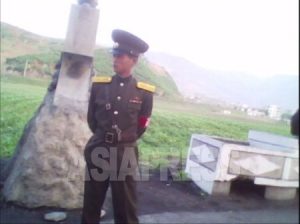
2016/Sept/9
The State Security Department of North Korea recently resumed their investigation into families with missing persons. An ASIAPRESS reporting partner, living near the Sino-North Korean border in North Hamkyung Province, reported on the people summoned for interrogation.
The partner explained that the State Security Department had resumed such investigations from August 20: An investigation team, comprised of State Security Department agents, a People’s Security police officer, and a neighborhood watch leader, had either visited the families of missing persons or summoned the family to the department offices.
Through questioning, the State Security Department is gathering information on the date a family member went missing, why the family member is thought to be missing, and the person’s suspected whereabouts.
“Targeted families usually assume that the authorities are looking to classify the missing as individuals ‘gone to South Korea,’ or ‘gone to China’. Authorities are doing this by checking the criminal record (smuggling with Chinese, contacting Chinese-Korean, and any record of earning through smuggling) of missing persons,” explained the reporting partner.
He confirmed that investigations are continuing in many neighborhood watch groups in his county. He wasn’t, however, certain on whether or not the investigation is underway at the state level.
Related article : <Photo Report on N.Korea> N.Korean People’s Army Facing State of Starvation
The State Security Department and the People’s Securities Department have carried out investigations into border area missing persons since the famine of the 1990s. On occasion, if a missing person is found to have fled to the South, they expel the family of the defector inland, as a means of preventing their subsequent escape.
Accordingly, it is common for the family of the missing to claim ignorance as to the whereabouts of an absent member, or to offer a bribe to state security agents to avoid punishment.
In some cases, a family member might try to pass him or herself off as the missing person. This is done in an effort not to be labelled as “families of escapees to the South”.
Nest page...

























